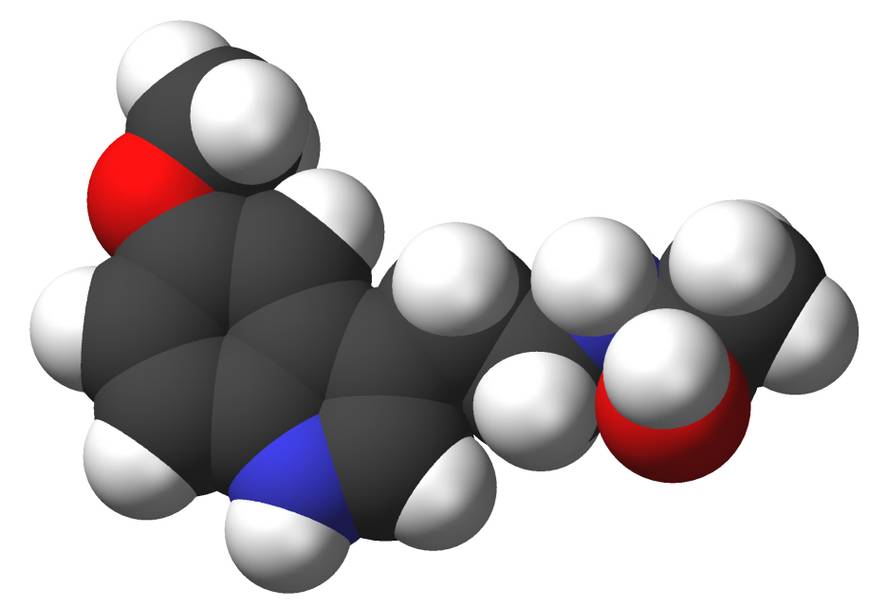2012/09/06
290. zenbakia

eu es fr en cat gl
Aparecerá un contenido traducido automáticamente. ¿Deseas continuar?
Un contenu traduit automatiquement apparaîtra. Voulez-vous continuer?
An automatically translated content item will be displayed. Do you want to continue?
Apareixerà un contingut traduït automàticament. Vols continuar?
Aparecerá un contido traducido automaticamente. ¿Desexas continuar?
They have carried out a molecular schedule to know the time of the biological clock
Text created by automatic translator Elia and has not been subsequently revised by translators.
Elia Elhuyar
To know what time it is in a person's biological clock, a molecular schedule has been made at the RIKEN Institute of Developmental Biology (Kobe, Japan). So far there was only one way to know a person's biological clock: follow-up of melatonin or cortisol hormones, extracting blood 24 hours and every hour and measuring the concentration of one of the hormones.

Molecular structure of the hormone melatonin. - Ed. Sbrools sbrools
With the aim of facilitating the method, Japanese researchers have elaborated a schedule based on the concentrations of 58 metabolites. These metabolites are hormones and amino acids related to biological activity and have created the schedule relating their concentrations to melatonin.
The study, published in the specialized magazine PNAS, indicates that with this time it is enough to take two blood samples to a person with a margin of 12 hours and analyze them to know the person's clock. This facilitates, for example, that a patient should be told when to take the drugs according to their biological schedule.
According to Hiroki Ueda, “personalized medicine has focused on genes, but the next step will be to look at clock differences between patients.”






